Amit Gobrin was on vacation in Israel’s north, taking a break from training as a company commander in the Israel Defense Forces (IDF), when he heard emergency alarms start to ring on Oct. 7, 2023.
Gobrin was confused: There was no information about what was going on, no media reports that missiles were shot down, no sign that everything was under control.
After he called his commanding officers, Gobrin decided to travel south and linked up with other soldiers to mount a defense against what they understood to be an infiltration.
In southern Israel, Gobrin “saw the most horrific view that I have ever seen in my life,” with bodies strewn across the ground and burned-out cars smoldering.
Oct. 7 has left deep scars in Israel and the Israeli diaspora across the world.
The Hill talked to several Israelis and Israeli Americans about how the country has changed since that day, when the Palestinian militant group Hamas invaded southern Israel and killed more than 1,100 people while taking roughly 250 hostages.
Gobrin said he engaged several Hamas fighters who stormed into southern Israel and believes he saved civilian lives that day. He later served in Gaza, where he was injured by shrapnel and went blind in one eye, which led to an honorable discharge from service at the rank of major.
“After you’ve been in the seventh of October, you get pretty motivated,” he said, “to take [away] their ability to hurt the Jewish people and Israel once again ... and I hope that it's not going to wake only Israel and the Jewish people. It needs to wake everyone that has pro-West, prodemocratic values.”
Israelis remain divided on how to handle the war, which has no end in sight, and they disagree on how to achieve a lasting peace with the Palestinians, and whether two states is a viable solution.
Protests have roiled Israel as demonstrators call for an agreement to be reached to bring hostages home. Other Israelis have supported the government’s goal to eliminate Hamas, even if that undermines hostage negotiations.
But Israelis share an anxiety about present and future threats from across the region, as the country battles against Iranian-backed groups across the Middle East in the worst outbreak of violence in decades.
Late last month, Israeli forces began limited operations against the Iranian-backed group Hezbollah in Lebanon on a mission to return some 60,000 displaced residents to border communities. The growing risk of a wider war was underlined a day later, when Iran on Oct. 1 fired some 180 ballistic missiles at Israel.
Ruth Lande, a former diplomat and Knesset member, said the U.S. and allies should unite behind Israel, given the threat that Iran and its proxies would pose to Western countries if the conflict escalates.
“It's maddening because it’s just beyond comprehension how irresponsible one can be to let this continue and happen. It's not about Israel, [we just] bear the brunt,” said Lande, who lives in Israel and has four children.
Lande says a cease-fire in Gaza right now could lead to more attacks and weapons smuggling. She also supports an operation in Lebanon to push back Hezbollah and form a buffer zone on the border, as well as Israeli security control of a postwar Gaza.
The Oct. 7 attack saw some 1,500 fighters break into Israel, surging past border fences with bulldozers and motorcycles and even paragliding into the country, under the cover of thousands of rockets.
Starting early on Oct. 7, a Saturday morning, Hamas killed and kidnapped innocent civilians, including women and children, and opened fire on youth at the Nova music festival. The United Nations also found that Hamas fighters engaged in sexual violence.
“Whole communities have been broken,” said Lande. “We all have been through a significant traumatic experience, because these are people who went into our homes and into our beds. ... The country is traumatized.”
The attack lasted hours, catching Israel completely unaware in a major security failure that has yet to be addressed. Israeli Prime Minister Benjamin Netanyahu has said questions about Oct. 7 should be answered after the war, while critics say he’s prolonging the conflict for his political survival.
Netanyahu declared war shortly after the invasion began. After the Hamas fighters were cleared out by the following day, Israel began more intense airstrikes on Gaza and invaded by late October.
More than 41,000 people have been killed in Gaza in the year since, many of them women and children, though the Palestinian Ministry of Health does not distinguish between fighters and civilians.
Some Israelis, while they feel the pain of the Oct. 7 attacks, also want to relieve the suffering of innocent Palestinians in Gaza.
Ben Linder, who was born in Israel but now lives in Palo Alto, Calif., said a “heinous, horrendous crime” was carried out by Hamas on Oct. 7. But he argued it’s important to understand the context of the attack, coming as the extreme far right has gained power under Netanyahu, and seeks to further erode Palestinian rights.
Linder, now a co-chair of the Silicon Valley chapter of the liberal Jewish advocacy group J Street, blamed Netanyahu for not reaching a cease-fire and hostage-release deal in Gaza, which he argued would also stop the conflict in Lebanon.
“Netanyahu is pursuing a victim narrative in order to justify extreme belligerence, and I'm afraid that we are in for five, 10 years of conflict,” he said.
In his community in Palo Alto, Linder said he’s fallen out with friends and family over the war. He wants a two-state solution and an Arab-led coalition to administer Gaza after the war.
“The overwhelming anger has caused incredible division and polarization in the community, specifically around how to relate to the rights of both Israelis and Palestinians,” he said. “The sense of equality between the needs of both people has sort of disappeared.”
It’s not just Gaza where Palestinians have suffered since the outbreak of the war. In the West Bank, illegal Israeli settlements have expanded dramatically since Oct. 7, and more than 600 Palestinians have been killed there since the war began.
Linder said he was deeply concerned about the actions of far-right settlers in the West Bank, and what it means for future prospects for peace.
“They are creating Jewish settlements that bisect a possible Palestinian state into many, many different parts,” he said. “I have many Palestinian friends in small village areas at the West Bank that are undergoing extreme abuse.”
Palestinians have also been increasingly targeted in Israel.
Hassan Jabareen, the founder and director of Adalah, a Palestinian-run legal center in Israel, said cases against those who have protested the war in Gaza have skyrocketed since Oct. 7.
Israeli authorities are bringing waves of indictments against Palestinian citizens of Israel for allegedly inciting terror, which Jabareen said were generally against those who have written Facebook posts sympathizing with civilians in Gaza.
“In the 30 years of Adalah, we didn’t have such a police order in Israel banning the Palestinian citizens of the state from demonstrating against a war,” he said. “This criminalization of Palestinians sent a message to the community that this government is ready to harshly oppress their political rights.”
The International Court of Justice, the United Nations's top court in The Hague, is overseeing a case brought by South Africa accusing Israel of genocide in Gaza.
Jabareen, who is a Palestinian citizen of Israel, said he wants a continued examination of that case, but said more than anything he wants an end to the Gaza war and a peace based on Palestinians’ right to self-determination.
“I'm not looking at things black and white,” he said. “I hope the two sides will reach the conclusion that [a] militaristic approach is not the solution.”
The war has raged on in Gaza despite pleas from the U.S. and wider international community for a cease-fire and hostage-release deal.
Around 100 hostages were freed in a brief November truce between Israel and Hamas, but negotiations for another deal have faltered as both Israel and Hamas blame each other for setting new conditions.
Some hostages have been freed in the months since, but several have also been reported killed, including six in August.
Yoshi Zweiback, the senior Rabbi at Stephen Wise Temple in Los Angeles who has previously lived in Israel and still has family there, says he wears a sticker every day for the hostages.
He said that while there has been a strong sense of unity in the Jewish community, he struggles with a “feeling of isolation” because the conflict has been so divisive.
“Why aren't we hearing more of our friends’ voices, more of those people who we thought were our allies speaking out against terror, against Hamas, against Hezbollah, and for justice?” he said. “So that's been one challenge, that sense of feeling dislocated and in some ways abandoned.”
Zweiback’s daughter is a student at Columbia University, which was swept up in pro-Palestinian protests over the spring.
He said it has been hard for her deal with protesters who have called for violence against Jews or have chanted “From the river to the sea,” widely perceived as an antisemitic slogan calling for the elimination of Israel.
“I support their right to make such statements,” he said, but “I find those statements to be deeply flawed from a moral perspective, and I find such statements demonstrating deep moral confusion.”
Zweiback wants the suffering of Palestinians to end in Gaza, and he supports both the elimination of Hamas and a two-state solution, though he called the latter a “pipe dream” amid the current situation.
Still, Zweiback said he has hopes for peace, pointing to the normalization of ties between Egypt and Israel just a few years after the 1973 Yom Kippur War.
“Even if you wanted to stop hoping, as a Jew, it's just nearly impossible. You almost have no other choice but to hold on to hope. And that is a deeply felt part of the Jewish experience,” he said. “I am hopeful that even in this moment of darkness, there will be positive outcomes that will surprise us and inspire us.”





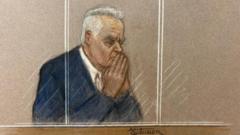

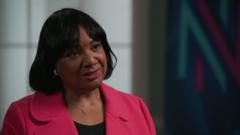


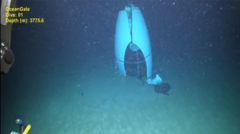
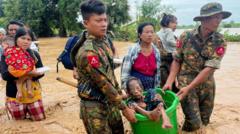

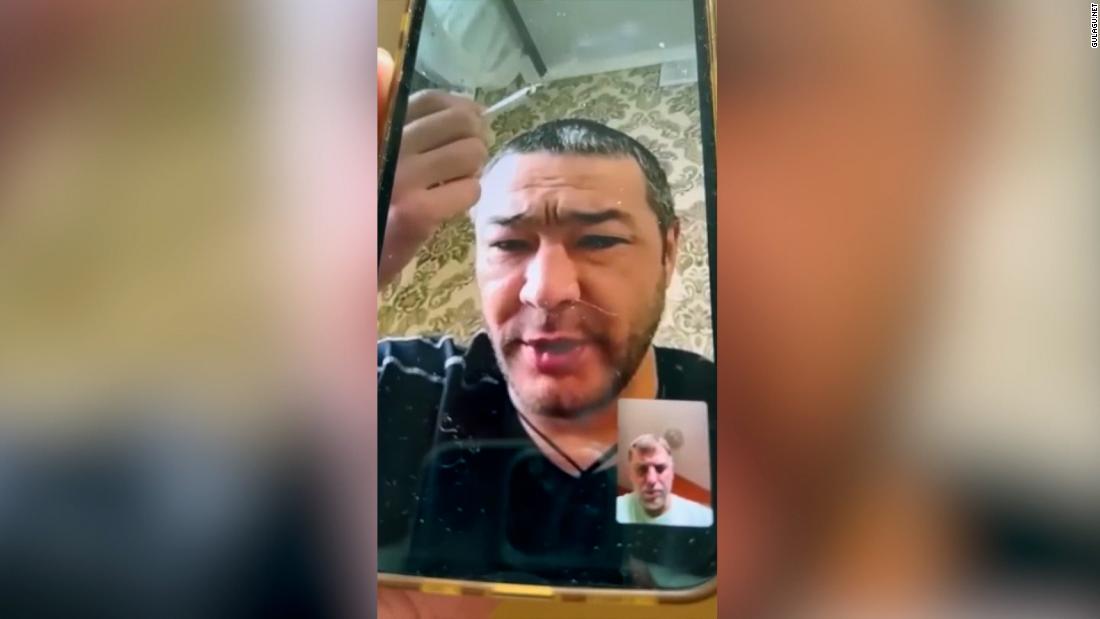

 English (US) ·
English (US) ·